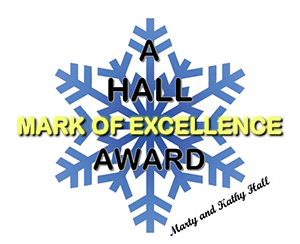 This coverage is made possible through the generous support of Marty and Kathy Hall and A Hall Mark of Excellence Award. Learn more about A Hall Mark of Excellence Award—or about supporting FasterSkier coverage—by contacting info@fasterskier.com.
This coverage is made possible through the generous support of Marty and Kathy Hall and A Hall Mark of Excellence Award. Learn more about A Hall Mark of Excellence Award—or about supporting FasterSkier coverage—by contacting info@fasterskier.com.
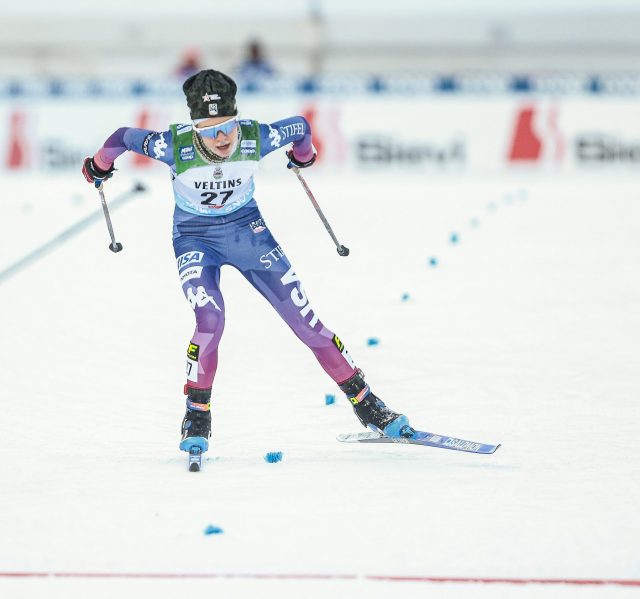
FasterSkier has been following the precedent-setting training and competition of Stifel U.S. Ski Team member, Sophia Laukli. For those readers who haven’t been keeping up with her headlines, Laukli spent last summer training as usual for winter, and on the side went out and won the Golden Trail Series world marathon competition, beating the world’s best trail runners, and setting course records along the way.
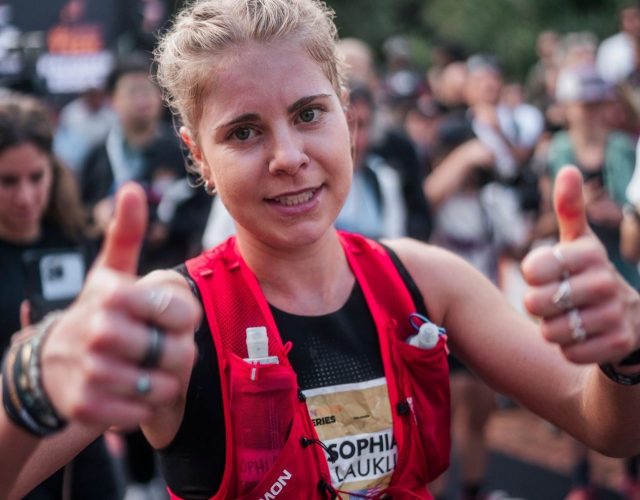
One of the things which was somewhat overshadowed in Sunday’s epic Ruka women’s freestyle race was that Laukli finished 14th, a mere 12.8 seconds off the podium. In a race with a less spectacular podium-outcome, Laukli’s performance would have been newsworthy on its own. Many questions remain about whether Laukli’s schedule is a viable approach to World Cup racing. So, we decided to check in with Sophia to get her thoughts on the matter.
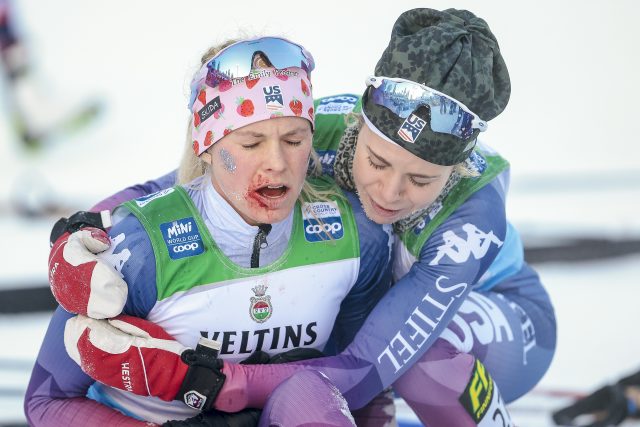
FasterSkier caught up with Laukli after the Ruka races to see now that the season has begun, how she is feeling about the training and racing she did the preceding summer.
“I was very happy with the 20km,” she told FasterSkier. “I think it’s probably the best mass start race I’ve ever done just from a tactics/pacing outlook. I’m usually always excited for 20km skate races since it’s probably my best distance, but I was pretty stressed for this one because I don’t normally manage mass starts well. I felt really good so I was really psyched to maneuver my way to the front and surprise myself a bit by staying there until the finish.”

It’s early in the ski season, but Laukli is beginning to assess how her summer training and trail racing is affecting her winter abilities. “As of now, I would say all of the running this summer has at least not had a negative effect, which is all I was hoping for, (she said. “That was the goal of the year because I’m very committed to both sports and continuing to compete in both, so navigating a way where one doesn’t sacrifice the other was the hope.”
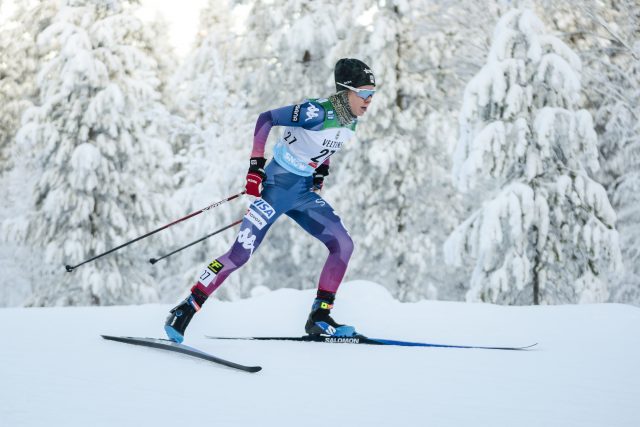
Laukli also feels that there are definite benefits from the experience of summer trail racing marathons. “I think for sure having all these two to four hour races this summer could help a lot with pacing and endurance throughout ski races as well, especially the longer ones,” Laukli said. “The trail races this summer were essentially 3+ hours of threshold training each time, so that probably (or hopefully) just built a very strong endurance base that should help a lot with race management, avoiding bonks, and just being able to maintain pace at a higher level.”
It’s too early to tell whether she has dialed in the process of essentially being a year-round racer. For now, Laukli isn’t looking to change very much. “In terms of next year, I’m not sure I will change a whole lot,” she said. “This summer, I think I took a big step in being able to balance all of my ski training and recovery from the running races really well, and actually make them work together for more benefit. I had a lot of help from my coach in Norway [in] how to implement the running and races better into my year training as well. My summer training is still focused and built for skiing with much more roller skiing than running, so because I still managed to perform well in all of the races this summer, I will probably stick to that plan next year as well.”
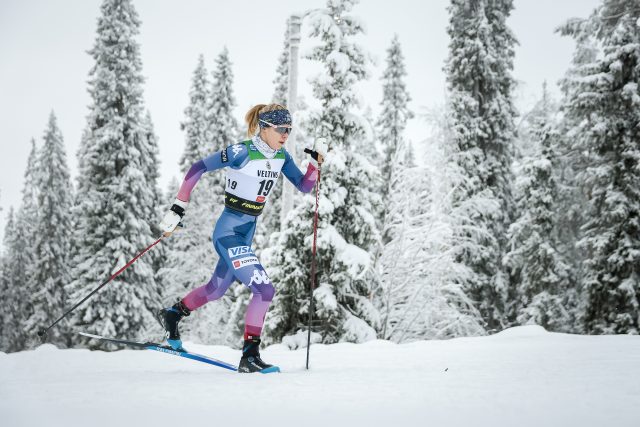
It’s a long season, and we are literally just past weekend number one. Time will tell whether Laukli’s program is sustainable. For now, everything seems to be working according to plan.



